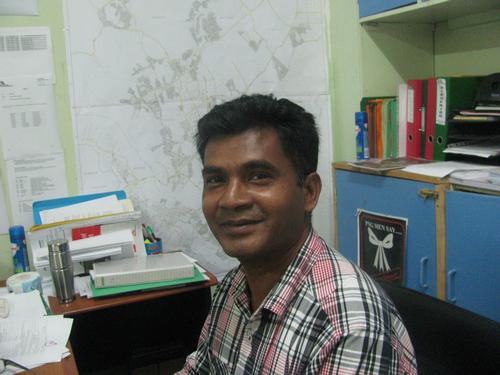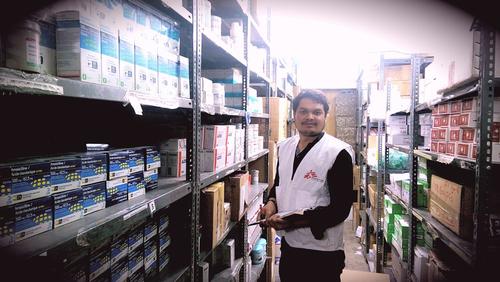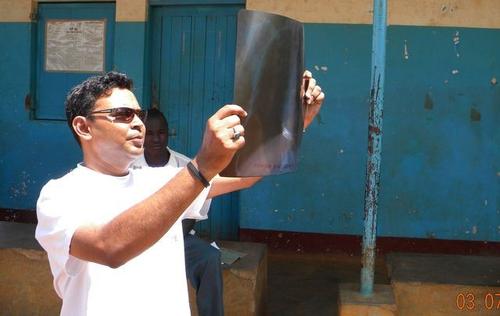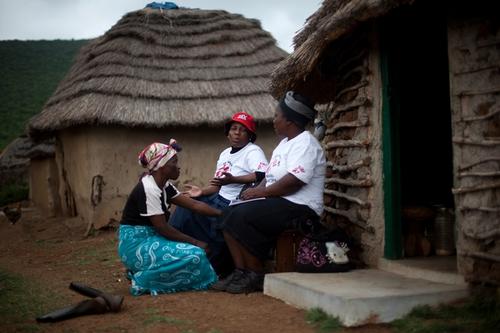Ambrose Toppo from Bangladesh is in charge of the calculator in Médecins Sans Frontières (MSF). His expertise has helped the organization have the financial and legal affairs in order in remote areas of the globe across ten different countries. He currently works in Papua New Guinea, where family, sexual and tribal violence is a problem.
Numbers must be clear. Finance sheets, payments to suppliers, purchase orders, budget reports… There are always numbers behind the action of doctors and nurses who alleviate the suffering of thousands of people in the most remote areas of the globe. Ambrose Toppo knows it well. He has been in charge of the finances with Médecins Sans Frontières (MSF) for the past seven years in ten different countries.
A Sociology and MBA graduate, Toppo is currently MSF Financial Coordinator in Papua New Guinea, where the organization deals mainly with survivors of violence.
It has been a long way up to Port Moresby from his hometown in the Dinajpur district, north of Bangladesh, where he was born 48 years ago.
His work has spanned from Haiti to Yemen, and has taken him to Uganda, Nigeria, Holland, Central African Republic, Somaliland, Uzbekistan and Liberia.
“My objective and responsibility is to ensure that financial resources and policies are in place in order to support the organization’s medical-humanitarian activity and to operate within the legal confines of Papua New Guinea”, says Toppo.
High levels of violence
“The reason for MSF’s presence in the country is mainly the high levels of violence, which affects everyone, regardless if adult or child, male or female. While family and sexual violence mostly affects women and children, men are the primary victims of tribal violence, which is also widespread. Everyone, whether they’ve experienced rape, beatings or knife wounds, comes to the hospital for treatment”.
In his position, he might not be directly involved with patients, but he is deeply concerned about many of the stories he comes across during his mission, some of them very sad. Others give us a glimpse of hope.
“One day a lady showed up in the ‘Family Support Centre’, a service dedicated to the care of family and sexual violence survivors. She was nine months pregnant, she had been brutally beaten and raped by her husband a week before, and finally locked in a room for the past three days. Somehow she managed to escape and walked through the bush to our centre where she got medical treatment and psychological care”.
According to Toppo, the woman then went into labour and MSF referred her to the maternity centre. “That same night, she gave birth to a healthy baby girl whom she named Gail, after the nurse who took care of her. I was very impressed by the courage of that woman. Unfortunately, these kinds of incidents are happening every day in Papua New Guinea”.
It is difficult to tackle the root causes of these sad stories. “We are trying to create awareness among the community. We also advocate towards the Government and different actors to roll out all the services needed for survivors of family and sexual violence”. MSF works together with the health authorities, sharing technical expertise, providing training and establishing clinical guidelines.
Spicy food and family, thousands of kilometres away
His hard job often makes him forget that he is thousands of kilometres away from Bangladesh. “I miss my son and wife and also the spicy food, curry, biryani, polao etc…,” says Toppo.
If the mission is very long, he tries to go home once, but from some places it can be very expensive.
Before he started this humanitarian journey overseas, Toppo worked in Bangladesh for a long time. That’s where he got the inspiration.
“I worked with people from different countries and cultures who came to Bangladesh. All this inspired me, I liked the ideals and the vision of MSF, trying to reduce suffering and support the victims of nature and man-made disasters worldwide”.
But there is still much more to do.






